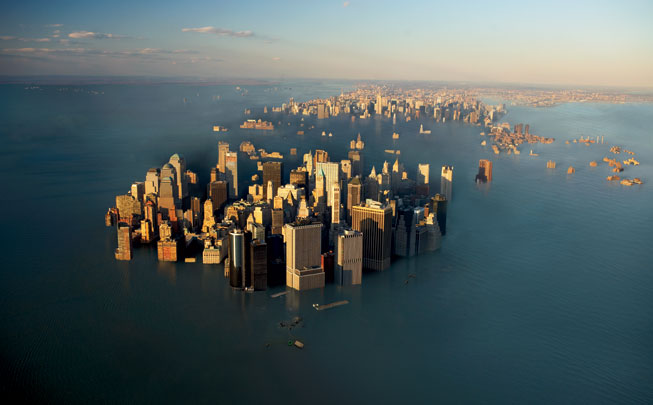TEHRAN, September 13 - The Pentagon continues to take measures for protection of its bases against impacts of global warming although US President Donald Trump rescinded all climate-related federal agency actions directed by former President Barack Obama, a report says.

TEHRAN, Young Journalists Club (YJC) - The initiatives that Trump killed in March included one that stipulated the Pentagon to be ready for extreme whether in the future operations, Military Times reported on Tuesday.
“A changing climate will have real impacts on our military and the way it executes its missions,” the Defense Department concluded in a 2014 report, dubbed a “climate change roadmap,” issued in the wake of Obama’s order. “The military could be called upon more often to support civil authorities … in the face of more frequent and more intense natural disasters.”
The report is reminiscent of these days of Texas and Florida, which have been heavily impacted by hurricanes Harvey and Irma.
“Hampton Roads region in Virginia, which houses the largest concentration of US military sites in the world, we see recurrent flooding today, and we are beginning work to address a projected sea-level rise of 1.5 feet over the next 20 to 50 years,” the roadmap concluded.
On March 28, the Republican president issued an executive order to invalidate the roadmap, based on which the Pentagon had issued directive 4715.21, “Climate Change Adaptation and Resilience,” in January 2016.
“It makes a lot of sense to prepare for a wide variety of natural disasters,” said retired Marine Corps Colonel Mark Cancian, a senior advisor at the Center for Strategic and International Studies. “Even if there were no climate change, you would want to be ready for hurricanes, you would want to be ready for floods. I think the department is framing it in that context –
just preparing for adverse events.”
According to Pentagon spokesman Lieutenant Commander Patrick Evans, the department is now reviewing the directive “to determine if it should be suspended, revised, or rescinded.”
“As [Defense] Secretary [James] Mattis has said, the department evaluates all potential threats that impact mission readiness, personnel health, and installation resilience, then uses that information to assess impacts and identify responses,” Evans said. “The effect of a changing climate is one of a variety of threats and risks, but it’s not a mission of the Department of Defense.”
Some 20,000 American guardsmen have reportedly been deployed to deal with the aftermath of Hurricane Irma.
The figure includes more than 15,500 Army and Air Guard members from at least seven states joining the efforts in the US states of Florida, Georgia, Alabama, North and South Carolina, as well as the territories of Puerto Rico and the US Virgin Islands.
Source: Press TV
Related News
Tags
Your Comment